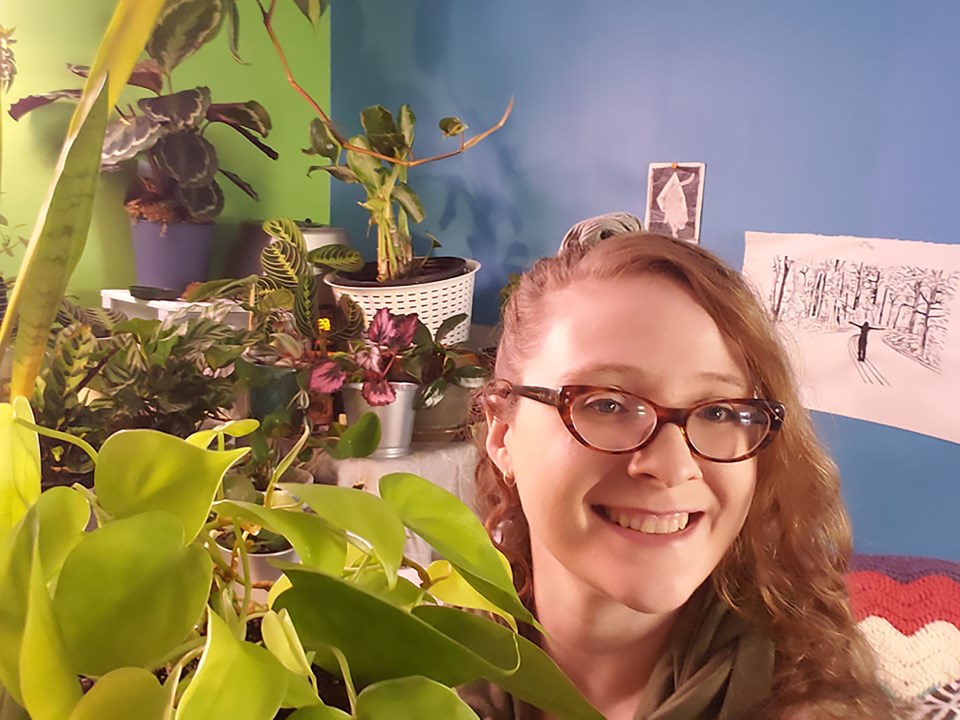Just like a bad infestation of thrips, the Internet is rife with people who want to sap you dry.
In the ever-growing world of house plant Internet groups and online marketplaces, plant flipping and common house-plant scams have become all too popular — and annoying — ways for people to get ripped off.
Becky Shepherd, administration for the St. Albert House Plant Club, has some tips for anyone looking to buy plants online.
What exactly is plant flipping?
Shepherd said when a person is buying a plant to flip, they will find a cultivated plant from a big-box store, often for a particularly good deal.
“These people will show up [at the big box store] and they know what time the deliveries come in and get unboxed because every store sort of has their own routine. They'll show up right when the plants are being unboxed at the store and they will buy all of them,” Shepherd said.
The plant flipper will then sell each plant at a much higher price.
“The flippers are buying all of them at that $25 price, and immediately turning around and reselling them as though they were nursery plants for like 125 bucks.
“They're not spraying them for pests. They're not putting them in a different pot. I have actually seen posts from somebody that, you know by what they're posting, is a plant flipper, where they didn't even take the sticker price of the plant off the picture they posted on Facebook,” she said.
A good way to know whether a plant is priced reasonably is to join an Internet plant group, as the group will inform members about current plant shipments coming to the area.
Shepherd said, for instance, in November, Lowe's got a shipment of the extremely popular Cebu Blue plant, which has been really difficult to get in Alberta. If a person knows what has been shipped and they know the price is $25, they can spot and avoid the plants sold privately online at $50 to $100.
“Especially because right now the only other way that you're going to get a pot of Cebu is it's a pot that somebody has grown from cuttings from their own plant,” she said.
Shepherd said if you don't know what a reasonable market value is for a plant, then you're going to have a tough time knowing what's a fair deal and what's not.
“There are definitely people who get ripped off by that all the time,” she said.
On top of plant flipping, other scams include the sale of cuttings that likely won’t root or trying to sell a cutting from a plant the seller doesn't actually have, or even a plant that doesn’t actually exist.
“That's a problem that we see. Someone will take a picture off of Google and try to sell you that plant, but they don't have it,” Shepherd said.
Shepherd recommends doing a reverse image search on photos before sending any money to sellers.
Scams including variegated plants have also been big because variegation is big right now.
“People usually want to see lots of splashy white, or cream. The plant that they'll be buying will be like a green leaf with a tiny white fleck on it and yes, that's technically variegated. But the reality is if you buy that cutting and you root it, you're probably not going to get the plant that you're looking for,” she said.
She has also heard of sellers from a foreign country reaching out to say they work with a greenhouse and have a couple of extra plants to sell. Sometimes it’s legitimate, but sometimes it’s not.
Shepherd said in these cases, reverse image search, and if the photo is in the first 10 results that is not the plant you will be getting.
If sellers from a foreign country don’t say anything about a phyto-sanitary certificate that is also a problem.
To import a plant into Canada it needs to be shipped bare roots with no soil, it needs to be checked for pests, and it needs to have the certificate.
“Somebody who's suggesting that they sell plants from another country to Canada and they don't say anything about [a] phyto-sanitary certificate, or they say that you don't need one because you're a private buyer, that is not true. That is a big lie.
“Your plants — if there are even plants — will be taken as soon as they cross the Canadian border and they will be destroyed by the government,” she said.




